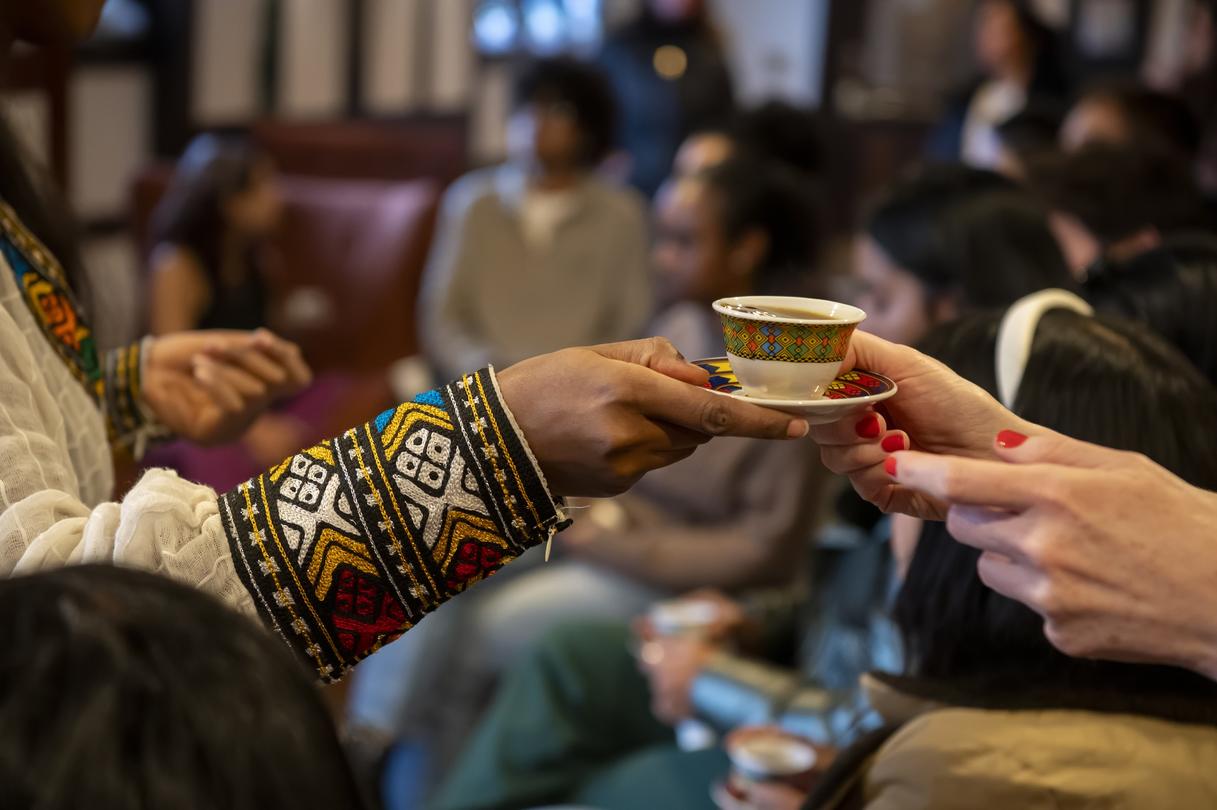Students explore the history of coffee in Africa

To explore the rise of coffee as a commodity with significant global intersections, students in the “History of Coffee in Africa and the Middle East” course traveled to Ethiopia over fall break to examine the cultural history of coffee in the context of the development of the coffee industry.
The course, taught by Lacy Feigh, Link-Cotsen Postdoctoral Fellow in the Society of Fellows and Lecturer in the Council of the Humanities and History, is a Princeton Institute for International and Regional Studies (PIIRS) Exploration Seminar. H.M. Zafer, senior lecturer in the Program in African Studies accompanied Feigh and her students.
As a Peace Corps volunteer in the East African nation, Feigh consumed coffee every day with her neighbors. The delicate perfume-like aroma of roasted coffee beans, the thump-thump of the mortar and pestle pounding the beans — these sensory memoires left an indelible mark on Feigh. As a historian of modern Ethiopia and the greater Nile Valley, she noticed there was little literature on “the internal coffee economy or Ethiopian coffee culture which is so central to day-to-day life,” she said. The course aimed to bring the “production of coffee and the consumption of coffee to bear on like the history of modern Ethiopia.”
In Ethiopia, students examined the development of the coffee industry and its broader intersections with histories of labor, nationalism, imperialism, culture and environment. They conducted ethnographic reflections of the coffee chain and examined the growth of global industries and their impact on the lived experiences of people at the heart of these industries.
“Coffee is an ingrained part of so many people's daily routines, and we forget whose hands it has passed through,” said Kelly Park, a senior majoring in history. She’s also a barista at The Coffee Club, the University’s student-run specialty coffee shop. “I hand out a lot of cups of coffee every shift and am also big coffee drinker myself. I wanted to learn more about the source. In Ethiopia, women are central to the coffee supply chain but aren’t often the ones who benefit economically.”
Added Anika Asthana, also a senior history major: “In Yirgalem, we saw a washing and drying station. It was beautiful. Seeing all the labor — picking, washing, drying, sorting them in the sun — seeing a coffee ceremony shifted my perspective, gave me another level of humility and appreciation for the finished good in my hands.”
The course concluded on campus with a traditional coffee ceremony at The Coffee Club, in Campus Club, led by Elias Gurmu and Sarina Prabasi, founders of Buunni Coffee, an independent, Ethiopian coffee company based in New York City. At the ceremony, Buunni Coffee employee Tarik Kassa roasted and ground beans, and served the aromatic beverage with popcorn, as is traditionally done in Ethiopia. Gurmu and Prabasi answered questions about the particulars of the ceremony and about their business.
For students with roots in Ethiopia or the region, the course and the closing festivities carried a different weight. Tesnim Ahmed is international student from Ethiopia, and a sophomore majoring in operations research and financial engineering. “There are things that you do [in a culture] that you don’t give a name,” like the ubiquitous coffee ceremony, she says. The course served as a “way to articulate in words the things that I already knew and felt as an Ethiopian. I didn’t know this identity could be studied in a formal sense. There aren’t many classes like this at Princeton — or anywhere. The most beautiful moment I had on the trip when we just sat around during an evening coffee ceremony and talked about how special it was to feel seen.”
